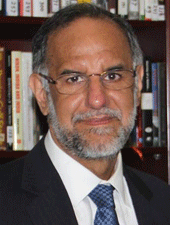
India’s Civil Aviation Ministry has
been approached by regulator Director General of Civil Aviation (DGCA)
to ask domestic carriers to help speed up the process of flying out donated
organs.
Moving donated organs in the country has
not only been a time-consuming process – often defeating the very
purpose of the donation – but also an expensive one.
Above The
Madding Crowd
Moving donated organs from one city to another
have been few and far between though intra-city movements have been done
with the police creating a “green corridor” amidst the maddening
traffic.
Air transportation of donated organs is
common in developed countries, but in India with carriers in the private
sector transferring organs from one city to another is expensive, though
the most reliable.
Not A Priority
But That Could Change
Adding to the problems are delays in transportation
– simply because the donated organs are not provided the priority
they deserve.
As a result, they are not delivered on time
and, therefore, wasted.
The move to impress upon the DGCA came from
the Ministry of Health.
Keeping in mind “the time sensitivity
of organ transplantation,” an official who was aware of the initiative
said that the DGCA had been requested to ask private airlines to help
out.
The ministry hoped that the government-run
Air India would come forward to help out in the transportation.
Once the details are worked out, it will
go a long way to save lives.
According to estimates, 5,00,000-odd die
in the country every year just waiting for organs.
Take the case of kidney transplants.
Around India 2,20,000 patients await for
kidneys in a year.
Of this number, only 15,000 are able to
receive donated kidneys.
While on the one hand, the government’s
agencies have taken the initiative to save lives, on the other, the government
faces a Public Interest Litigation on the transportation of mortal remain
from foreign countries by air.
The Remains of the Day
The Delhi High Court has been dragged into
a tussle over the repatriation of mortal remains of Indians dying abroad.
On one side are the air carriers and on
the other a NGO.
Air India
Rate Hike Gambit
It all came unhinged when national carrier
Air India put an end to the 50 percent reduction in fares that it was
providing for the carriage of bodies of Indians who died in the UAE on
September 19, 2018.
Worse, the airline also put an end to the
free transportation of bodies for the distressed and low-income Indian
families living in the Emirates.
Apparently, Air India was only following
The Air Cargo Tariff (TACT), with the standard rate specified by the International
Air Transport Association (IATA), according to reports.
Air India had been following IATA’s
normal TACT rates everywhere except the UAE where it provided a 50 percent
discount.
Sinking Fortunes
 Now,
with financial pressures, the sinking rupee and high ATF costs, Air India
bosses some time ago took the decision to levy charges as per the TACT
rates. Now,
with financial pressures, the sinking rupee and high ATF costs, Air India
bosses some time ago took the decision to levy charges as per the TACT
rates.
Reports indicate that Air India used to
waive off charges for distressed and low-income Indians – especially
when the Indian consulate sent a request.
Air India’s decision does not seem
to have gone down well with the Indian diaspora in the Gulf nations.
The Indian Ambassador to the UAE, Navdeep
Singh Suri, was quoted by a daily saying that the embassy would help the
destitute and be ready “to take on a larger responsibility and fill
the void left by Air India”.
Advocate
For The Forlorn
 In
India, NGO Pravasi Legal Cell (Overseas Legal Cell) recently filed a Public
Interest Litigation (PIL) petition in the Delhi High Court asking for
an urgent hearing as well as direction for a regulation regarding charges
for transportation of mortal remains of migrant Indians who die abroad. In
India, NGO Pravasi Legal Cell (Overseas Legal Cell) recently filed a Public
Interest Litigation (PIL) petition in the Delhi High Court asking for
an urgent hearing as well as direction for a regulation regarding charges
for transportation of mortal remains of migrant Indians who die abroad.
Said Advocate Jose Abraham, heading the
Pravasi Legal Cell, “The petition concerns the exorbitant fee charged
by airlines for transportation of the migrant workers within India and
from abroad sans any regulation to the effect.”
He said that the recent decision of Air
India to hike fairs for transportation of mortal remains of the Indian
migrant workers dying abroad had affected the fundamental rights of emigrant
workers working abroad.
Abraham also mentioned that low-cost carrier
IndiGo carried bodies of residents of the Northeast who die in Delhi free
of charge.
His PIL also stated that a few countries,
including Pakistan, Bangladesh, etc. have provisions to carry the mortal
remains of their citizens back to the country free of cost.
The petition named the External Affairs
Ministry, the Ministry of Civil Aviation and the Chairman and Managing
Director of Air India as respondents.
Tirthankar Ghosh
|





 Vol.
17 No. 82
Vol.
17 No. 82